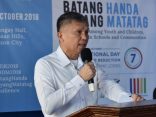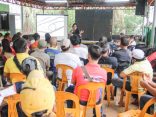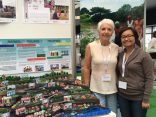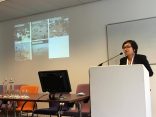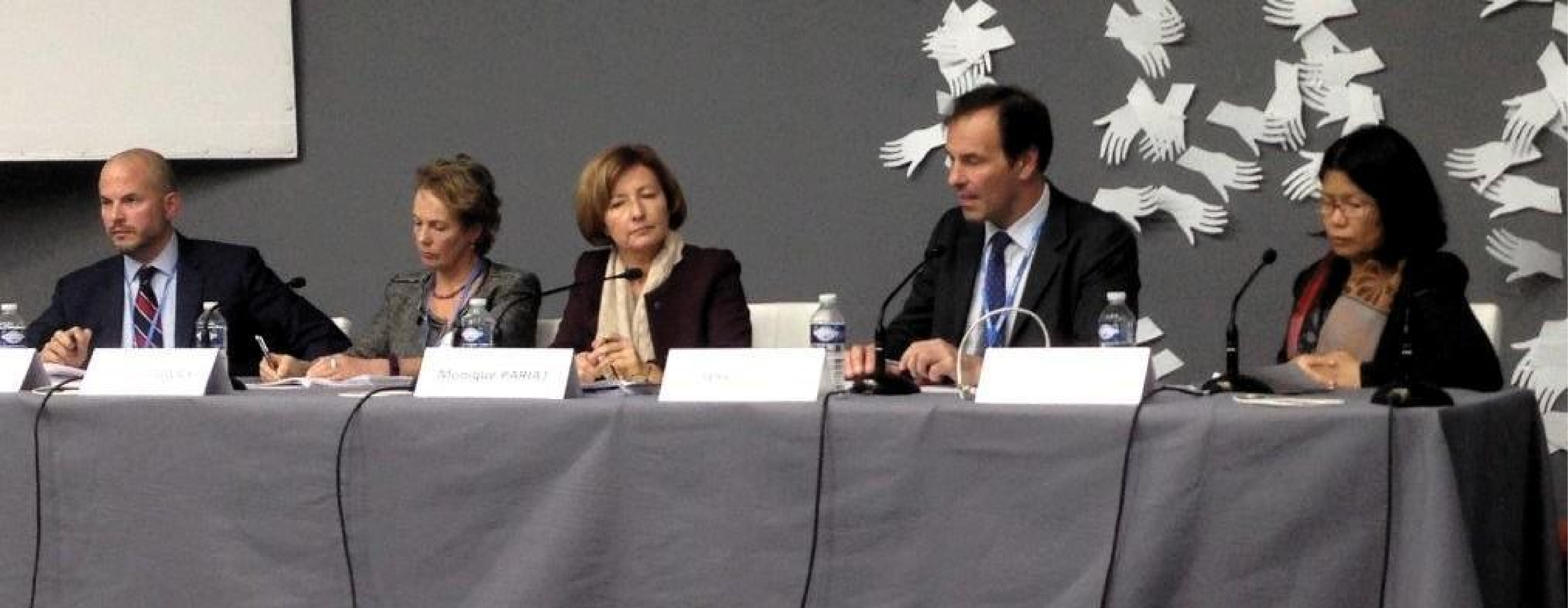 In photo: Sindhy (far right) at the panel discussion organized by ECHO (Wouter Bokdam / CARE NL)
In photo: Sindhy (far right) at the panel discussion organized by ECHO (Wouter Bokdam / CARE NL)Paris, France – Sindhy Obias, Resilience Project Coordinator of ACCORD, was a panelist at two high-level side events yesterday during the 21st Session of the Conference of the Parties to the United Nations Framework Convention on Climate Change (COP21). COP21 gathers leaders from all nations with the aim of achieving a legally binding, universal agreement on climate.
In photo: Sindhy (far right) at the panel discussion organized by ECHO (Wouter Bokdam / CARE NL)
Paris, France – Sindhy Obias, Resilience Project Coordinator of ACCORD, was a panelist at two high-level side events yesterday during the 21st Session of the Conference of the Parties to the United Nations Framework Convention on Climate Change (COP21). COP21 gathers leaders from all nations with the aim of achieving a legally binding, universal agreement on climate.
The first one, entitled “Disaster Risk Management and Climate Change Adaptation: Two Sides of the Same Coin,” was organized by the European Commission’s Humanitarian Aid & Civil Protection department (ECHO). Chaired by Monique Pariat, Director General of ECHO, the event looked into how disaster risk reduction (DRR) and climate change adaptation (CCA) complement and reinforce each other. Joining Obias at the panel were Adam Boukolos (Director of the UN Office for Disaster Risk Reduction), Jane Madgwick (CEO of Wetlands International), and James Close (Director of the World Bank Climate Change Group).
The second one, “Climate Change, Who Cares?”, looked into issues of climate justice, food, and disasters. Moderated by Karin van den Broeke (ICCO Cooperation & Climate Ambassador in the ACT Alliance Climate Campaign), the event was organized by ICCO, Cordaid, and CARE. Panelists included Neera van der Geest of ICCO/Fair Climate Fund, Meera Ghani of CIDSE, Isaac Kabongo of ECO-Uganda, and Emma Bowe of CARE Kenya.
ACCORD was invited to share its experience in pioneering community and rights-based DRR, in partnership with CARE Nederland and with consistent support from ECHO. With contribution from the Partners for Resilience program, this practice later evolved into integrated risk management (IRM), integrating DRR, CCA and ecosystem management and restoration (EMR). IRM recognizes that disaster risks can be lowered more effectively if communities are empowered to adapt to climate change and protect the environment.
The Philippines ranks as the most at-risk country affected by climate change in 2013 according to the Global Climate Risk Index 2015. Nearly 13 million have been affected by Typhoon Haiyan. During the panel discussion, Obias noted that, “these are not just numbers but the lives of the poorest and most vulnerable people. They should be at the heart of discourse, at the center of policies, programs and actions.”
ACCORD believes that IRM is not an end to itself, but only the means to achieve resilience and development for all. “There are good practices on the ground. We need to replicate and scale them up,” said Obias. Such efforts must be supported by developed countries, standing in genuine solidarity with developing nations like the Philippines.
Before leaving for Paris, Obias said that much remains to be done in terms of concrete action. “Developed countries, because they have more capacity to do so, must lead the way in reducing emissions. They must also provide sustained funding for developing countries which will not burden them with further debts,” she explains.
Obias remains optimistic. “I actually don’t know what will happen. But what I do know is this – in a world ravaged by disasters, many people are standing up with us, here in Paris and in many other places. There is enough for us to continue believing in the fundamental goodness of humanity, and we would choose to continue doing so,” she said.

